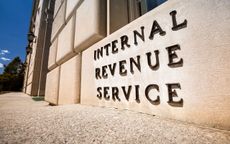
The IRS capital gains home sale exclusion can be a valuable tax-saving tool if you are eligible.
When you purchase through links on our site, we may earn an affiliate commission. Here’s how it works.

As a homeowner, you may have concerns about paying capital gains tax when you decide to sell your home. Luckily, there is a tax provision known as the "Section 121 Exclusion" that can help you save on taxes following a home sale.
In simple terms, this capital gains tax exclusion enables homeowners who meet specific requirements to exclude up to $250,000 (or up to $500,000 for married couples filing jointly) of capital gains from the sale of their primary residence. This means that if you sell your home for a gain of less than $250,000 (or $500,000 if married, filing jointly), you will not be obligated to pay capital gains tax on that amount.
However, there are certain criteria you must meet to qualify for the home sale exclusion. There are also several exceptions to the 121 exclusion rules. Here is more of what you need to know to help determine whether you qualify.
Be a smarter, better informed investor.
Save up to 74%
Profit and prosper with the best of expert advice on investing, taxes, retirement, personal finance and more - straight to your e-mail.
Profit and prosper with the best of expert advice - straight to your e-mail.
Primary Residence: You must have owned and used the home as your primary residence for at least two of the five years leading up to the date of the sale. The IRS allows you to have only one primary residence at a time, and the agency uses various factors to determine whether a home qualifies as a primary residence. Notably, however, the two years don't have to be a consecutive, single block of time during the five years.
Frequency: You can only claim this exclusion once every two years. So, if you have already excluded gains from a previous home sale within the last two years, you will need to wait before you can claim it again.
Eligible Gains: The exclusion applies only to gains from your home's sale, not losses. Additionally, any portion of the profit exceeding the $250,000/$500,000 limit will be subject to capital gains tax.
Note: It's important to keep detailed records of your home sale, including the purchase price, any improvements made to the property, and expenses. These records will help you accurately calculate your capital gains and determine if you qualify for the exclusion.
Exceeding the Limit: If your profit exceeds the exclusion limit, you will need to pay capital gains tax on the amount that surpasses the limit. For example, if you are single and your profit is $300,000, $50,000 of that profit ($300,000 - $250,000) would be subject to capital gains tax.
In that case, the tax rate you pay on the excess profit depends on your income and whether the gain is short-term or long-term. Generally, long-term capital gains tax rates are lower than ordinary income tax rates.
As mentioned, there are several exceptions to IRS home sale exclusion rules. For example, if you are transferring a home to a spouse or ex-spouse the IRS doesn’t consider that to be a gain or a loss.
For more information on these and other situations, see IRS Publication 523.
If you don't meet the eligibility test for the maximum home sale exclusion, you may still qualify for a partial exclusion of gain. For example, according to the IRS, you can meet the requirements for a partial exclusion if the main reason for your home sale was a change in workplace location, a health issue, or an unforeseeable event. For more information on how partial home exclusions are calculated, you can find resources on IRS.gov or consult with a qualified and trusted financial advisor.
Remember that, in any case, certain factors, such as any depreciation claimed for the home, may affect capital gains tax. It is also important to consider any state or local taxes that may apply to the sale of your home.
However, consulting with a tax professional is a good idea if you need clarification on your eligibility or help navigating the complexities of tax laws. They can provide personalized advice based on your situation and ensure you take full advantage of any available tax benefits.
Profit and prosper with the best of Kiplinger's advice on investing, taxes, retirement, personal finance and much more. Delivered daily. Enter your email in the box and click Sign Me Up.
By submitting your information you agree to the Terms & Conditions and Privacy Policy and are aged 16 or over.
Senior Tax Editor, Kiplinger.comAs the senior tax editor at Kiplinger.com, Kelley R. Taylor simplifies federal and state tax information, news, and developments to help empower readers. Kelley has over two decades of experience advising on and covering education, law, finance, and tax as a corporate attorney and business journalist.

Stock Market Today: Stocks Waver Near All-Time Highs Ahead of Fed Rate Cut Equities were torn between discounting a quarter-point cut and a half-point cut to interest rates tomorrow. By Dan Burrows Published 17 September 24

Microsoft Hikes Dividend, Announces $60 Billion Stock Buyback Microsoft The tech giant is returning even more cash to shareholders. By Dan Burrows Published 17 September 24

Is an Annuity Worth It? Tax Pros and Cons Retirement Knowing how an annuity might impact your tax situation can be confusing. Here are some advantages and downsides to consider. By Kelley R. Taylor Last updated 16 September 24

Incorrect ERC? IRS Points to Five New Red Flags Tax Credits These signs could mean there’s an error in your Employee Retention Credit claim. By Gabriella Cruz-Martínez Published 10 September 24

Five December 31 Tax Deadlines for Retirees The end of the year will be here before you know it, so it might be a good idea to start thinking soon about what you need to do for taxes before it arrives. By Evan T. Beach, CFP®, AWMA® Published 10 September 24

Will North Dakota Property Tax Be Eliminated? Property Tax A new property tax proposal will be a key ballot item for the Peace Garden State. By Gabriella Cruz-Martínez Last updated 9 September 24
 the middle of a road" width="" />
the middle of a road" width="" />
IRS Has No Set Plan to Replace Old Tech IRS What could old IRS technology mean for your federal tax return and cybersecurity? By Kate Schubel Published 9 September 24

Who Won the $800 Million Mega Millions? Lottery Tax What state was the winning ticket sold? The winner will get a huge payout (less some tax). By Kate Schubel Last updated 7 September 24

IRS Back Taxes Scam Call Steals Millions Scams IRS fakes are cheating thousands of people out of “overdue tax debt.” Are you next? By Kate Schubel Last updated 3 September 24

Unrealized Gains Tax: One Important Thing to Know Now Capital Gains Unrealized capital gains have taken center stage in election discussions about tax fairness and economic policy. By Kelley R. Taylor Last updated 3 September 24
Kiplinger is part of Future plc, an international media group and leading digital publisher. Visit our corporate site.
© Future US, Inc. Full 7th Floor, 130 West 42nd Street, New York, NY 10036.